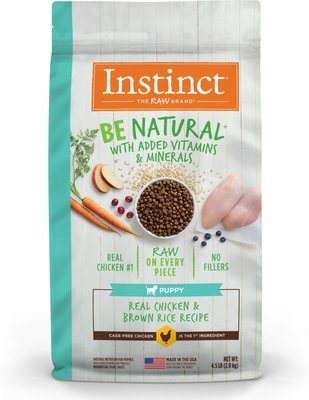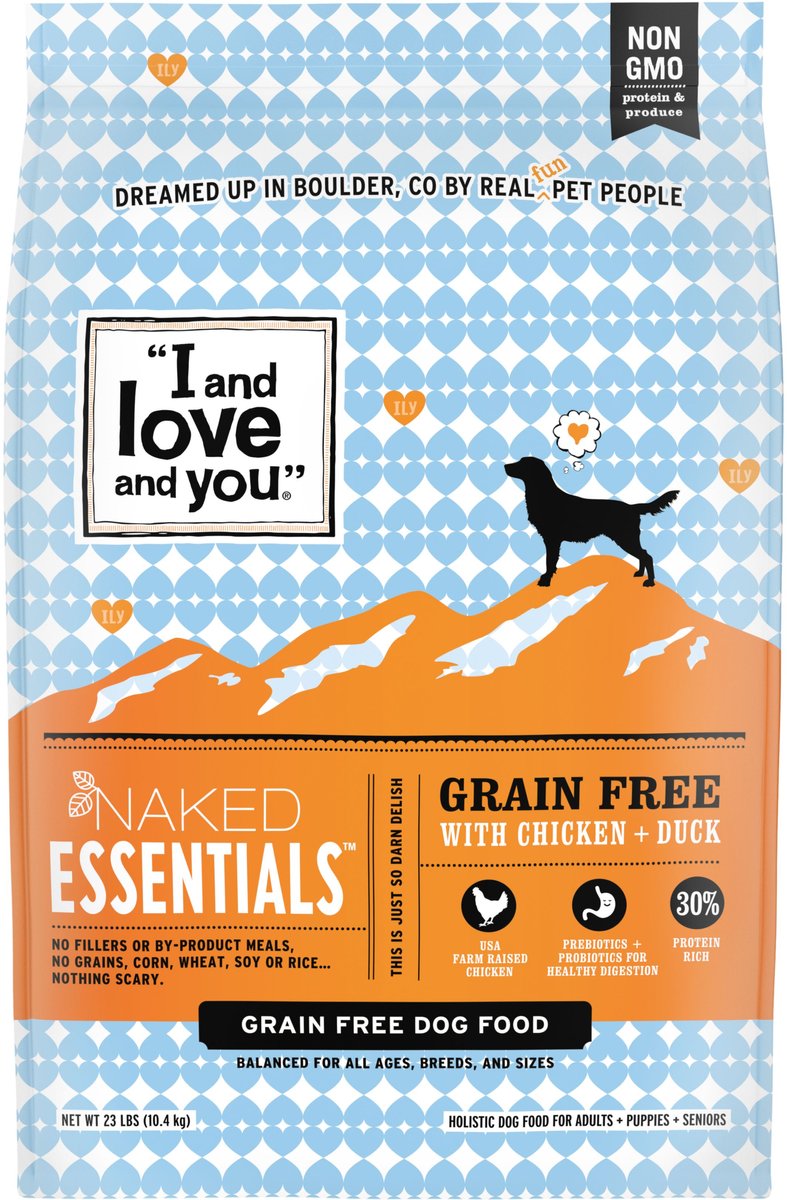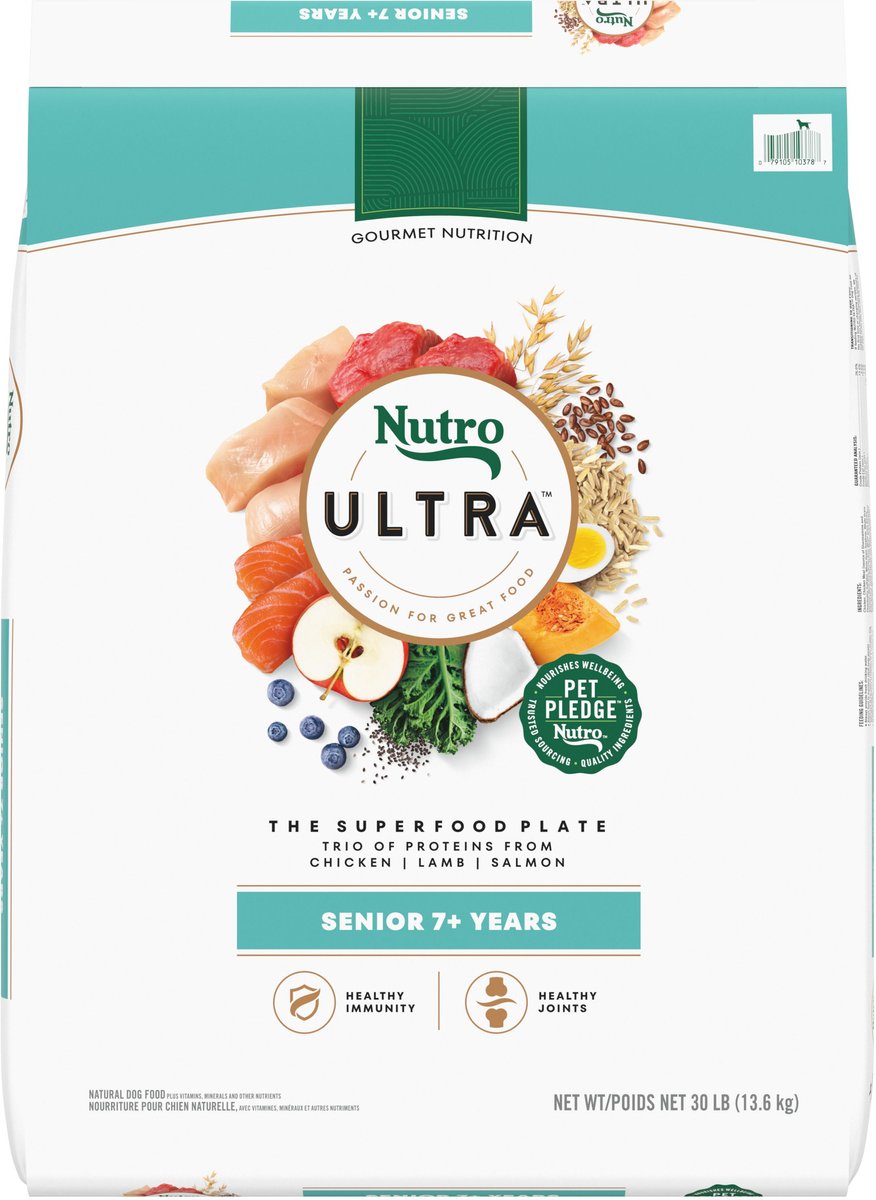What's the Best Dog Food for French Bulldogs?

A breed well renowned for its immense charm, the French Bulldog is one of today’s most popular breeds. Loving, affectionate, and suited to nearly any living situation, the Frenchie makes the ideal family companion. But keeping this breed in tip top condition is the priority of every owner. Whether you own a puppy, an adult, or a senior Frenchie, our top dietary picks are sure to keep your best canine pal on the path to excellent health and wellness.
Jump to section
Breed Info
Breed Group:Non-Sporting | AKC French Bulldog Profile
Ideal Weight:Female Adult: 22 to 28 pounds
Male Adult: 23 to 29 pounds
Exercise Need:15 to 25 minutes per day
Breed Summary
The French Bulldog’s distinctive bat-like ears make it easily recognizable (and loved). This small breed is a member of the non-sporting group and has a short, stocky body marked by impressive musculature. Easy to care for, the French Bulldog, a breed commonly referred to affectionately as simply a “Frenchie,” is a beloved family companion, easily fitting into any lifestyle including apartment life.
The Frenchie is a playful breed, enjoying time spent with its family. However, the French Bulldog is equally happy at home napping on the sofa. To ensure this breed does not become overweight, regular daily exercise is vitally important. However, due to the breed’s natural snub nose, the French Bulldog does not do well in extremes of weather; whether hot or cold.
An intelligent breed, the French Bulldog can readily learn new things if motivated to do so. However, Frenchies are known for being independent of spirit and can be quite stubborn.
The French Bulldog is deeply bonded to its family and does not thrive if left alone for long periods of time. A true lap dog, the Frenchie is most content being near those it loves the most.
The French Bulldog can be very nosey, making the breed well disposed to work as a watchdog. The Frenchie will eagerly alert its family to the presence of strangers or unusual noises, though this dog type is not typically known for being excessively vocal.
Physical Traits
Sturdy, muscular, stocky, substantial
Personality Traits
Comical, affectionate, alert, stubborn, loving
Health Considerations
-
Unfortunately, the French Bulldogs can be plagued with many different hereditary health conditions. Though diet alone cannot cure many of these problems, it can lay an excellent foundation to support good health in this sweet-natured breed. Among the most common health issues that can affect the French Bulldogs are allergies, intervertebral disc disease, cherry eye, ear infections, and pyoderma.
-
Allergies
The French Bulldogs is prone to a number of different ailments which can affect the stomach and the skin. Recurring allergies are one of these issues. Allergies can be food-related or environmental. Any allergies that are linked to specific food ingredients can often be managed with a switch to a limited ingredient diet that is free from common allergens. Among the foods we recommend are:
-
Ear Infections
Some dogs are naturally predisposed to recurring ear infections, and the French Bulldogs is one of them. Ear infections can occur as a result of a yeast overgrowth, trauma to the ear, allergies, autoimmune issues, or too frequent or too vigorous ear cleaning. A proper diet can help the French Bulldogs to keep allergies at bay and to avoid yeast problems.
-
Eye Health
Cherry eye is a condition that affects many dogs. It is evidenced when a third eyelid known as the nicitating membrane is released to protect the eye from an irritant. Cherry eye forms an important part of the frenchie’s ability to keep the eye safe from wind, dust, and any object that is foreign to the eye. In most cases, cherry eye is seen when the tissue that keeps the eyelid in place is weakened causing it to slip out of its normal position into the eye. It is most often genetic but can be treated with medication or surgery.
Recommendations:
Anthocyanins・ Astaxanthin・ Beta-carotene・ Carotenoids・ Glutathione・ Lutein・ Lycopene・ Omega-3 essential fatty acids・ Phytonutrients・ Vitamin A・ Vitamin C -
Intervertebral disc disease
Intervertebral disc disease is an inherited disorder which results in deep pain and can eventually cause complete paralysis in French Bulldogs. This condition occurs when discs in the spine become dislodged, swollen, or aggravated. This can occur organically or as the result of an injury to the spine. Keeping the French Bulldogs at a healthy weight can help prevent discs from slipping out of position.
-
Pyoderma
Pyoderma is a condition of the skin that can be brought on by a variety of different problems including inflammation, cancer, or infection. Bacterial infections are most often to blame. It can be treated through the use of medication; however, diet also plays an important role in preventing pyoderma in the frenchie. For overall skin health, we like to see diets contain:
Recommendations:
ALA・ Antioxidants・ Flaxseed/fish oil・ GLA・ Omega-3 fatty acids・ Probiotics・ Vitamin E・ Vitamins and choline
Get a tailored nutrition profile for your dog
Our free nutritional assessment tool provides individualized recommendations based on your dog's breed characteristics, age, weight, body condition score, and activity level. It only takes 30 seconds to receive science-based insights to support your dog's lifelong health.
Are Fresh Food Diets Good for French Bulldogs?
Only if they’re properly balanced.
Many well-intentioned French Bulldogs parents spend a lot of time preparing meals at home, but health benefits are lost if meals aren’t properly portioned and balanced with all the nutrients dogs need. Recently, a few companies have done an excellent job ensuring accurate portions and nutrient balance by delivering pre-prepped fresh meals customized to the size and needs of your dog. Farmer’s Dog, Ollie and Nom Nom have each been approved by our nutrition team as delivering truly quality and well-balanced meals. They can be a little expensive (usually 3-4x more per day than kibble), but many find the added health benefits worth the cost. They do offer discounts to new customers, though, if you’d like to try one out.
Pros and Cons of Fresh Food Diets
✓ Diets balanced by Nutritionists・ ✓ Customized portions for weight control・ ✓ Superior digestive and immune health ・✕ More expensive than standard dog food
Foods We Recommend for French Bulldogs Puppies
How long do French Bulldogss need puppy food?
Until they're 10 to 12 months old.
French Bulldogs are very focused on growing, and how we feed them should help them do just that. Since they have so much growing to do, they need higher amounts of nutrients than adult dogs, especially proteins, fats, carbohydrates, vitamins, minerals and — don’t forget — water. It’s still important to not overfeed puppies, so make sure to portion food and keep treats to no more than 10% of their caloric intake. Since balance is so important, we recommend that your young French Bulldogs is eating food that is made just for puppies from a reputable brand.
Find the best nutritional start for your puppy
Our recommendation tool evaluates your puppy’s breed, age, growth stage, lifestyle, and health needs to identify a scientifically appropriate diet from over 10,000 options. Obtain personalized guidance to help support healthy development and lifelong wellness.
Foods We Recommend for French Bulldogs Adults
When should French Bulldogs start transitioning to adult food?
When they're 10 to 12 months old
From a nutrition standpoint, French Bulldogs become adults once they reach about 90% of their expected weight. Once adults, our two key nutrition goals are balance and maintenance. We want balance because a dog’s body is responsible for a lot of things, like digestion, fighting infection, keeping muscles strong, and chasing squirrels. These are all important tasks, so we want to make sure each body function gets its share of nutrients. We also need to maintain a healthy weight. Underfed dogs are at risk for malnourishment, and overfed dogs can become obese — both of which lead to even worse problems for a French Bulldog
Find the optimal nutrition plan for your adult dog
Our assessment analyzes your dog’s breed, age, lifestyle, and health considerations to recommend a scientifically selected diet from over 10,000 options. Personalized insights to help your dog thrive through adulthood.
Foods We Recommend for French Bulldogs Seniors
When should French Bulldogs start transitioning to senior food?
All dogs can age differently, but small dogs like French Bulldogs can start to benefit from senior food around 8 to 10 years old
Ever watch kids running around the playground and wish you had that energy again? Yeah. Dogs get there, too. The metabolic processes in senior French Bulldogs slow down as they age, which often means they aren’t needing quite as many calories as they did in their prime. Smart dog food companies have formulated senior diets to ease up on calories but still help them feel full and give them adequate maintenance protein. Still, like humans, everybody is different. Sometimes older dogs need just as many calories, or more, depending on how their bodies progress. So keep a close eye on their body condition, and look for dog foods made for seniors.
Support your senior dog's health with targeted nutrition
Our assessment analyzes your dog’s breed, age, and health considerations to recommend a science-based diet from over 10,000 options. Help maintain mobility, cognitive health, and quality of life.
Affiliate Disclosure:
We do not accept money to recommend pet foods. However, we do receive referral fees from online retailers (such as Chewy or Amazon) on qualifying purchases. Our recommendations are neutral, and diet recommendations are made without considering whether we will receive a referral fee.















